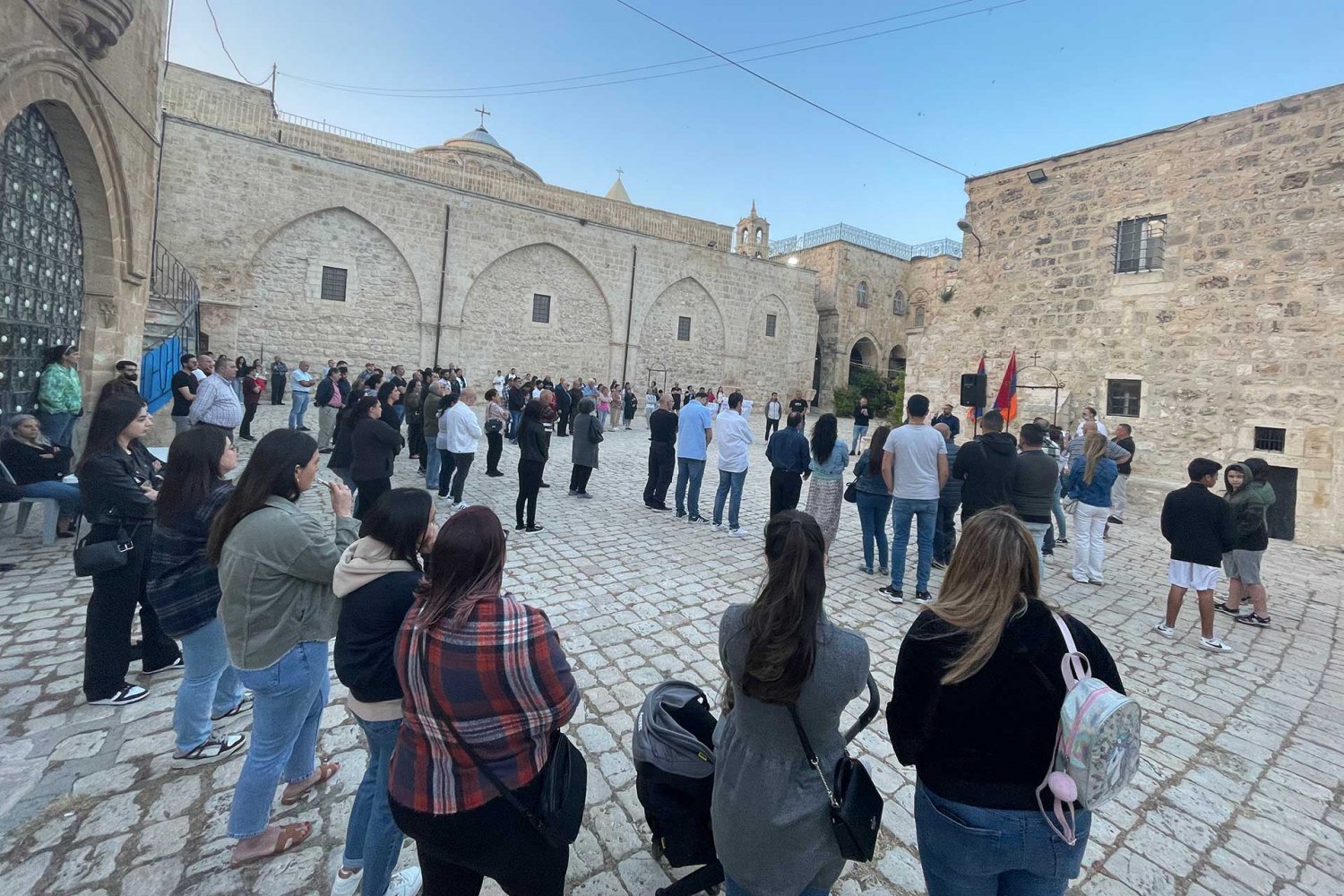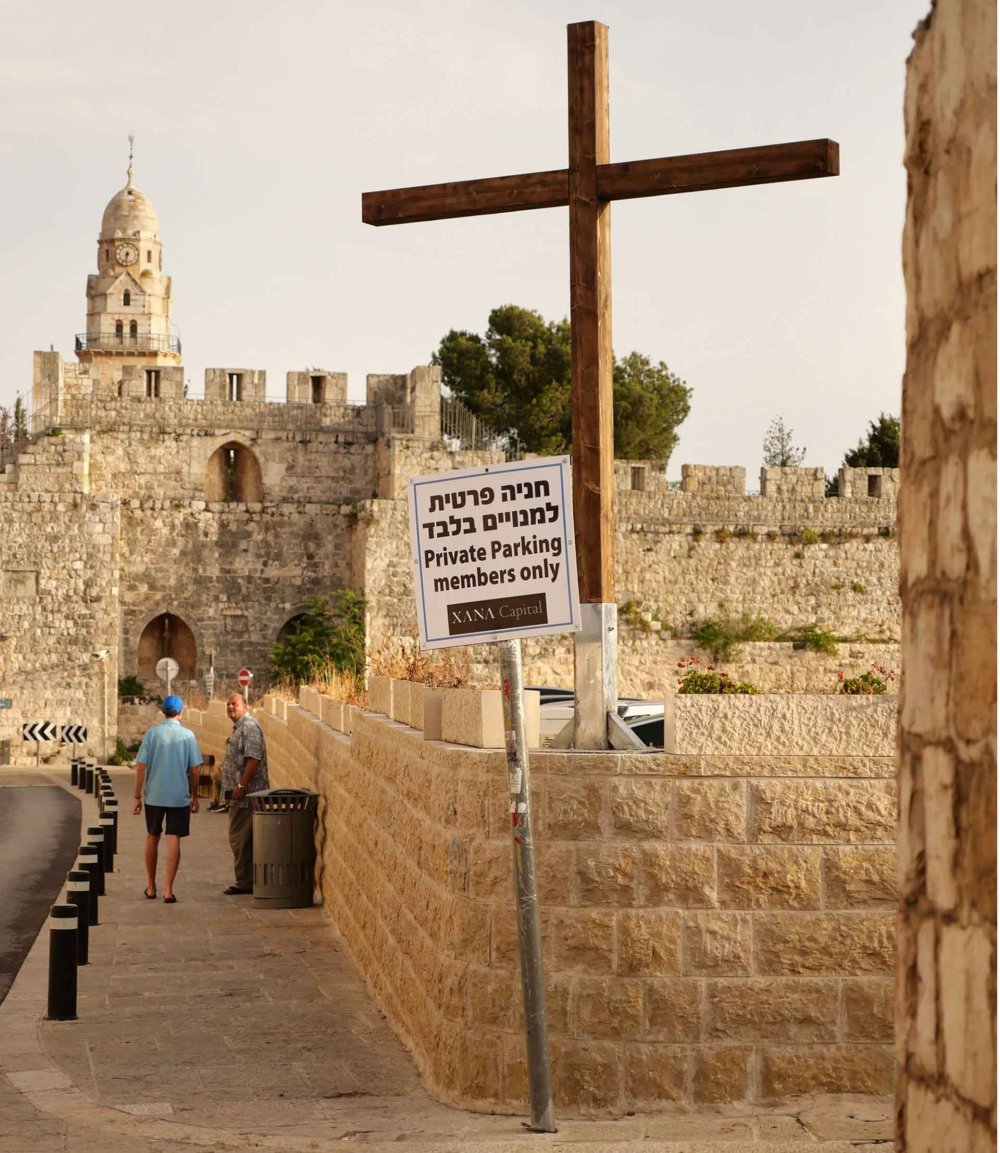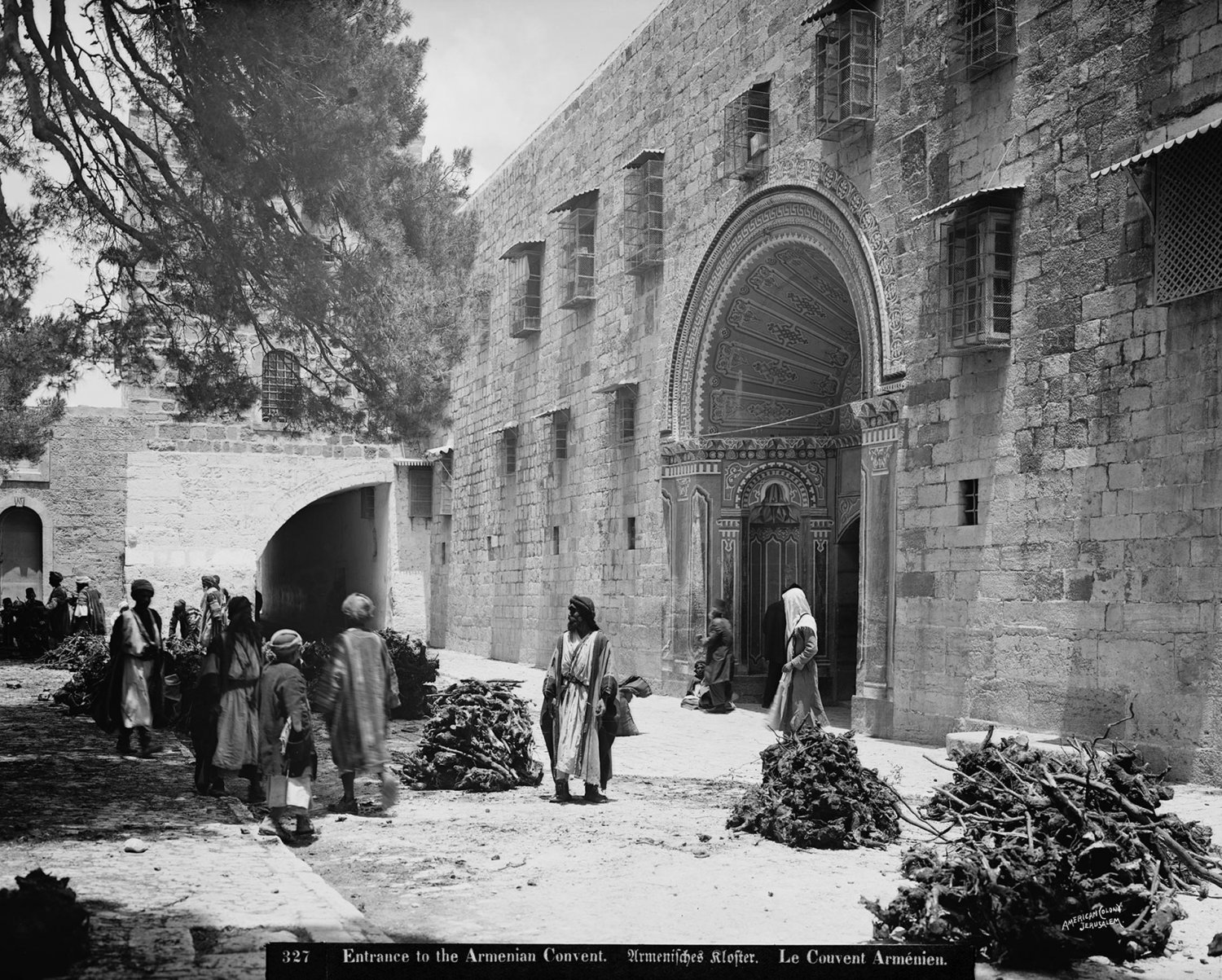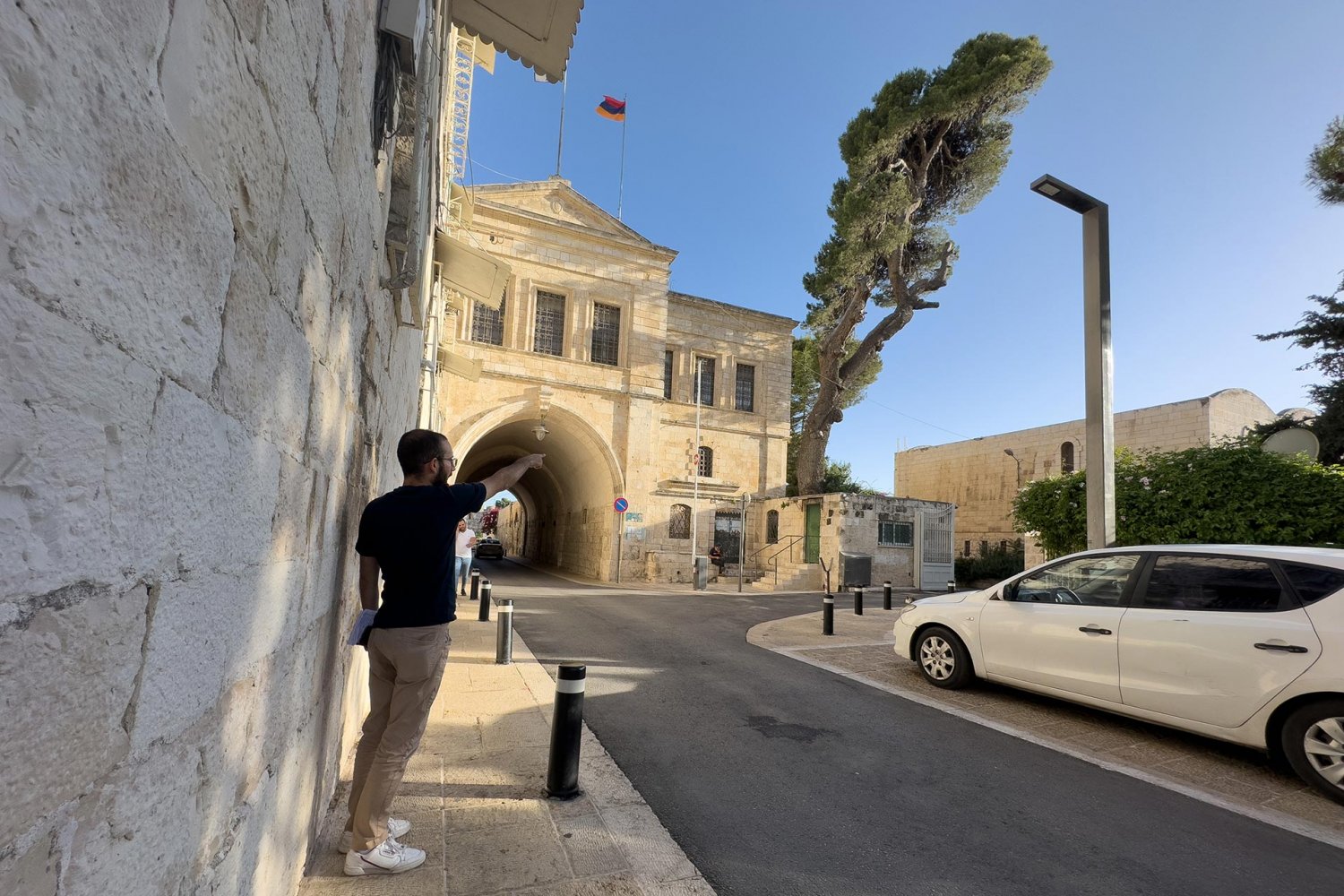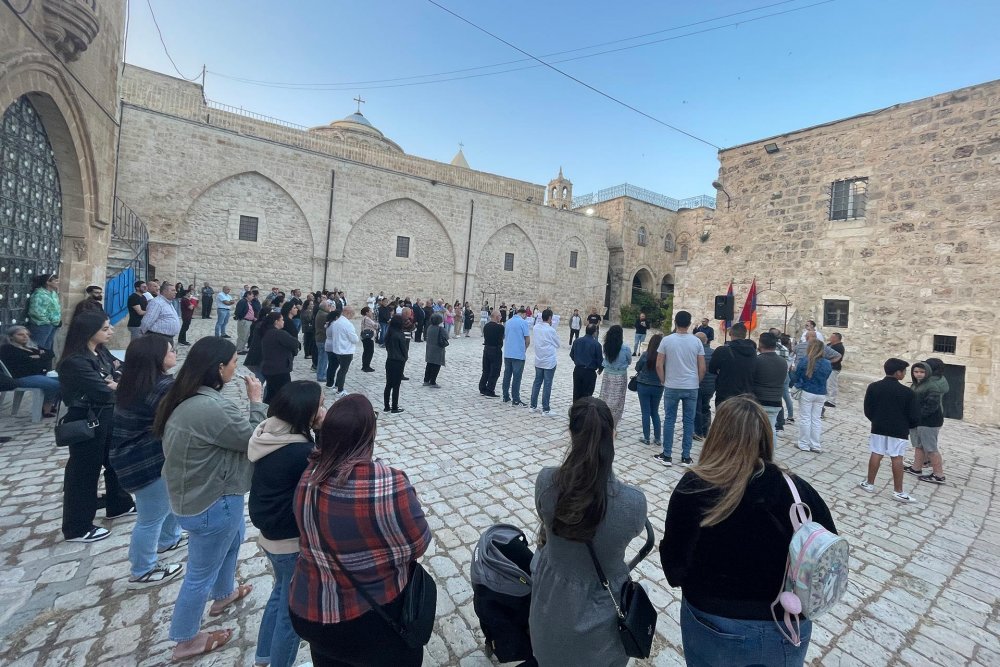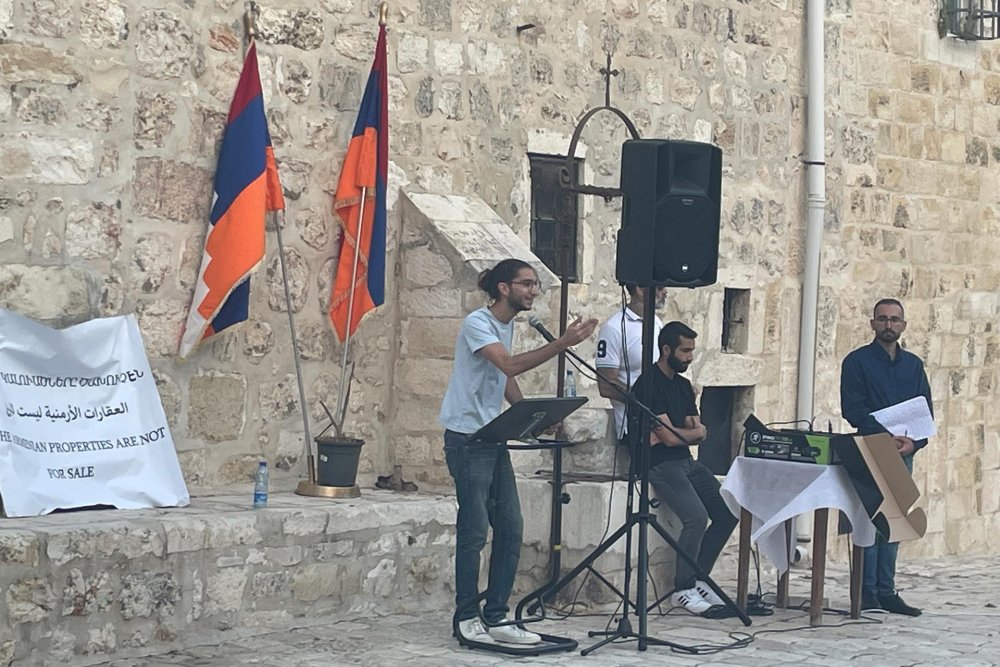A questionable land lease deal that the Armenian Patriarchate was pressured into making imperils land and property amounting to one-quarter of the area of the entire Armenian Quarter—approximately 3.2 hectares (almost 8 acres)—or 14 percent of Jerusalem’s Old City.1 The deal, made first with the Jerusalem Municipality and then with Israeli Australian businessman Dany Rubinstein, would reportedly sign away the property for 99 years.
Such a lease could be detrimental to the presence of the Armenian community in the Holy Land as well as to the character of the Old City overall.
While details are still hazy, the deal reportedly includes a parking area used by the community called “Goveroun Bardez,” Armenian for “Cows’ Garden,” as well as five residential homes belonging to Armenian families alongside it.2 According to local sources, the parking lot alone can accommodate from 150 to 180 cars.3
The Armenian community, outraged by the secretive deal, has been protesting continually since details were first leaked last fall and then solidified in April with a visit from Israeli land surveyors and a new sign on the parking lot in Hebrew and English announcing it as the property of XANA Capital.
Rubinstein reportedly aims to build a low-rise luxury hotel on the property.

